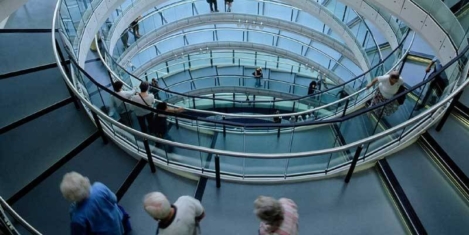September 18, 2017
The mega trends that continue to reshape the workplace around the world
 Last week, over 600 workplace and property experts met in London at the CoreNet Global Summit 2017 to discuss some of the most important trends affecting the sector. The debates underlined one important fact about property and workplaces, which is how they are shaped by major, globalised events as much as they are local needs and the objectives of specific organisations. This quickly became evident on day one, which demonstrated how dramatic shifts in the geopolitical landscape, all of which are impacting corporate real estate – from America First to Brexit – remain key talking points for the industry. Opening speaker Linda Yueh (University of Oxford and London Business School) explored several possible scenarios, including how the focus of ‘Trumpism’ would have a significant effect on the U.S. role on the world stage, with the priority on the domestic economy leaving little scope for global trade. She also predicted that a ‘hard Brexit’, with no new trade deal with the EU, will be the most likely outcome for the UK’s withdrawal process; and that businesses will need to focus on alternative WTO rules as an urgent priority. Other impacting factors covered by Yueh included the rise of a dominant global middle class, and China’s need to rebalance its economic growth drivers.
Last week, over 600 workplace and property experts met in London at the CoreNet Global Summit 2017 to discuss some of the most important trends affecting the sector. The debates underlined one important fact about property and workplaces, which is how they are shaped by major, globalised events as much as they are local needs and the objectives of specific organisations. This quickly became evident on day one, which demonstrated how dramatic shifts in the geopolitical landscape, all of which are impacting corporate real estate – from America First to Brexit – remain key talking points for the industry. Opening speaker Linda Yueh (University of Oxford and London Business School) explored several possible scenarios, including how the focus of ‘Trumpism’ would have a significant effect on the U.S. role on the world stage, with the priority on the domestic economy leaving little scope for global trade. She also predicted that a ‘hard Brexit’, with no new trade deal with the EU, will be the most likely outcome for the UK’s withdrawal process; and that businesses will need to focus on alternative WTO rules as an urgent priority. Other impacting factors covered by Yueh included the rise of a dominant global middle class, and China’s need to rebalance its economic growth drivers.
More →


































July 24, 2017
Employers have a growing responsibility to provide staff with cycling facilities
by Peter Ferrari • Cities, Comment, Property, Wellbeing
More →